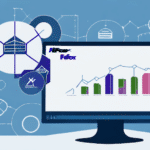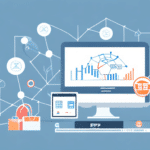Introduction to ERP Systems
Enterprise Resource Planning (ERP) systems are essential tools for modern businesses, providing integrated solutions that streamline operations and enhance productivity. According to Gartner, the global ERP software market is projected to grow to $49.5 billion by 2025, reflecting the increasing reliance on these systems across various industries.
ERP systems consolidate various business processes, including sales, inventory management, accounting, and human resources, into a single unified platform. This integration facilitates real-time data access and analytics, enabling businesses to make informed decisions swiftly and accurately.
One of the primary advantages of ERP systems is their ability to automate repetitive tasks, reducing the need for manual intervention and minimizing the risk of errors. This automation leads to significant cost savings and improved operational efficiency, particularly for businesses experiencing growth or managing complex processes.
Epicor ERP vs NetSuite ERP: An Overview
What is Epicor ERP?
Epicor ERP is a comprehensive solution designed to meet the needs of mid-sized to large enterprises across various sectors, including manufacturing, distribution, retail, and services. It offers a wide range of functionalities such as financial management, supply chain management, production management, and human resources management.
Epicor ERP stands out for its ability to streamline business processes through integrated modules that automate tasks like inventory management, order processing, and financial reporting. This integration not only saves time but also enhances accuracy and provides real-time visibility into business operations, enabling informed decision-making.
What is NetSuite ERP?
NetSuite ERP is a robust, cloud-based ERP solution tailored for businesses of all sizes. It encompasses a broad spectrum of functionalities, including financial management, inventory management, procurement, order management, production management, and customer relationship management (CRM).
One of NetSuite's key strengths is its cloud-based architecture, which allows users to access real-time data from anywhere with an internet connection. This flexibility is particularly beneficial for businesses with multiple locations or remote teams. Additionally, NetSuite offers customizable dashboards and advanced reporting tools, enabling businesses to track and analyze performance metrics effectively.
Key Features and Functionalities
Epicor ERP Features
- Advanced Financial Management: Comprehensive tools for budgeting, forecasting, and financial reporting.
- Supply Chain Management: Robust features for inventory control, procurement, and logistics.
- Production Management: Highly configurable production planning and manufacturing automation.
- Multi-Site Support: Accommodates businesses with distributed operations.
- Human Resources Management: Tools for personnel tracking, performance management, and training.
- IT Service Management: Enhances turnaround time on internal IT requests.
Epicor ERP also includes a comprehensive CRM system, enabling businesses to manage customer interactions, track sales leads, and analyze customer data to improve marketing strategies. This integration supports the automation of sales processes and enhances customer service management.
NetSuite ERP Features
- Financial Management: Real-time visibility into financial performance with tools for general ledger, accounts payable and receivable, and cash management.
- Inventory Management: Advanced features like bin management and landed cost tracking.
- Order Management: Automated processing of sales orders to streamline operations.
- Customer Relationship Management (CRM): Includes lead management, sales forecasting, and customer service management.
- Procurement Management: Covers the entire purchase lifecycle with end-to-end tools.
- Billing and Invoicing: Automated functionality supporting multiple billing formats.
NetSuite ERP excels in integration capabilities, allowing seamless connection with other business systems such as Shopify and Magento, as well as third-party logistics providers and shipping carriers. This integration simplifies operations management from a single platform.
Pros and Cons
Pros and Cons of Epicor ERP
- Pros:
- Highly scalable and customizable to fit specific business needs.
- Robust support for manufacturing and supply chain functions.
- Advanced automation capabilities for various business processes.
- Comprehensive human resources management tools.
- Supports multi-site management effectively.
- Cons:
- Can be complex with a steep learning curve for new users.
- Less intuitive user interface compared to some competitors.
- Requires significant investment in time and resources for customization and implementation.
- Limited support for CRM functions compared to specialized CRM tools.
Pros and Cons of NetSuite ERP
- Pros:
- Scalable tools suitable for various industries and business sizes.
- Robust automation tools that enhance operational efficiency.
- User-friendly interface, making it accessible even for beginners.
- Comprehensive support for CRM functionalities.
- Easily customizable system workflows to match business processes.
- Cons:
- Higher cost, which may be prohibitive for small to mid-sized businesses.
- Requires substantial training and time investment to fully leverage its capabilities.
- Weaker automation and functionality for manufacturing processes compared to specialized ERP systems.
- May necessitate additional third-party plugins to extend system functionality.
Pricing and Deployment Options
Comparison of Pricing Plans
Pricing for both Epicor ERP and NetSuite ERP varies based on factors such as the size of the business, the number of users, and the specific modules required. Typically, Epicor ERP's pricing is based on a per-user, per-month model, with additional costs for accessing different modules. NetSuite ERP also follows a similar pricing structure but may include more intricate tiered plans based on user count and module usage.
For accurate pricing tailored to your business needs, it is recommended to contact the vendors directly or consult with an authorized reseller.
Deployment Options: Cloud vs. On-Premise
Both Epicor ERP and NetSuite ERP offer flexible deployment options, including cloud-based and on-premise solutions:
- Cloud Deployment: Offers reduced initial investment, automatic updates, and accessibility from any internet-connected device. Ideal for businesses seeking scalability and flexibility.
- On-Premise Deployment: Provides maximum control over the system, including data management and security. Suitable for businesses with specific compliance requirements or those preferring in-house data management.
Cloud deployments typically offer enhanced security through robust cloud security protocols, ensuring data protection and compliance with industry standards.
Integration, Customization, and User Experience
Integration with Other Software Applications
Epicor ERP offers a comprehensive API suite, enabling integration with various software applications such as Salesforce for CRM and HubSpot for marketing automation. Similarly, NetSuite ERP provides robust APIs and pre-built integrations with popular platforms like Shopify and Magento, as well as third-party logistics and shipping services. These integrations facilitate seamless data flow and operational efficiency across different business functions.
Customization Options
Both Epicor ERP and NetSuite ERP offer extensive customization capabilities:
- Epicor ERP: Features user-definable fields, tables, and forms that can be modified through the system's backend or the Epicor Developer Network.
- NetSuite ERP: Allows modifications to various fields, tables, and forms, and includes scripting functionalities to automate workflows and tailor system behavior to specific business needs.
These customization options ensure that businesses can adapt the ERP systems to their unique processes and requirements, enhancing overall functionality and user satisfaction.
User Interface and Ease of Use
NetSuite ERP is renowned for its intuitive user interface, featuring easy navigation and a modern design that enhances user experience. This makes it accessible even for users with limited technical expertise. In contrast, Epicor ERP may require more extensive training to navigate its comprehensive features and functions but offers greater control and customization options for power users.
The choice between the two systems often depends on the team's familiarity with ERP systems and the desired level of customization versus ease of use.
Support, Security, and Future Trends
Support and Customer Service
Both Epicor ERP and NetSuite ERP provide comprehensive support services to their users:
- Epicor ERP: Offers online support, phone and email assistance, and urgent support through a dedicated help desk.
- NetSuite ERP: Provides similar support channels, including an extensive online knowledge base accessible 24/7, phone and email support, and urgent assistance through a dedicated help desk.
These support services ensure that users can receive timely assistance and resolve issues promptly, minimizing downtime and maintaining business continuity.
Security and Data Privacy
Both ERP systems prioritize data security and privacy, implementing robust security measures to protect sensitive business information:
- Data encryption to safeguard information during transmission and storage.
- Firewalls and advanced access controls to prevent unauthorized access.
- User permissions and role-based access to manage data accessibility.
These security protocols ensure that businesses can trust their ERP systems to protect against data breaches and maintain compliance with industry regulations.
Future Trends and Developments in the ERP Market
The ERP market is evolving rapidly, with several emerging trends shaping its future:
- Artificial Intelligence and Machine Learning: Enhancing automation, predictive analytics, and decision-making processes.
- Blockchain Technology: Improving data security, transparency, and traceability across business operations.
- Mobile Accessibility: Increasing demand for mobile-friendly ERP solutions to support remote work and on-the-go data access.
- Integration with Internet of Things (IoT): Facilitating real-time data collection and analysis from connected devices.
Staying abreast of these trends can help businesses select ERP systems that remain relevant and effective in the long term.
Case Studies and Conclusion
Case Studies and Success Stories
Both Epicor ERP and NetSuite ERP have been successfully implemented by a diverse range of businesses:
- Epicor ERP: Companies like Primal Pet Foods, TS Circuits, and Kirovsky Zavod have leveraged Epicor ERP to enhance their operational efficiency and scalability.
- NetSuite ERP: Organizations such as Evolution Fresh, Vaxcel LLC, and Lodgic Everyday Communities have benefited from NetSuite's robust functionalities to streamline their business processes and drive growth.
These case studies demonstrate the versatility and effectiveness of both ERP systems in addressing the unique challenges of various industries.
Conclusion: Which System is Best for Your Business?
Choosing between Epicor ERP and NetSuite ERP ultimately depends on your business's specific needs, size, budget, and desired functionalities:
- Epicor ERP is well-suited for mid-sized to large enterprises requiring robust manufacturing and supply chain management features, with a preference for on-premise deployments and high customization capabilities.
- NetSuite ERP is ideal for businesses seeking a cloud-based, scalable solution with strong CRM functionalities and an intuitive user interface, suitable for a wide range of industries and business sizes.
Assessing your business requirements, evaluating the strengths and limitations of each system, and potentially conducting a trial can help you make an informed decision. Selecting the right ERP system can significantly enhance your operations, improve efficiency, and support your business's growth objectives.




















